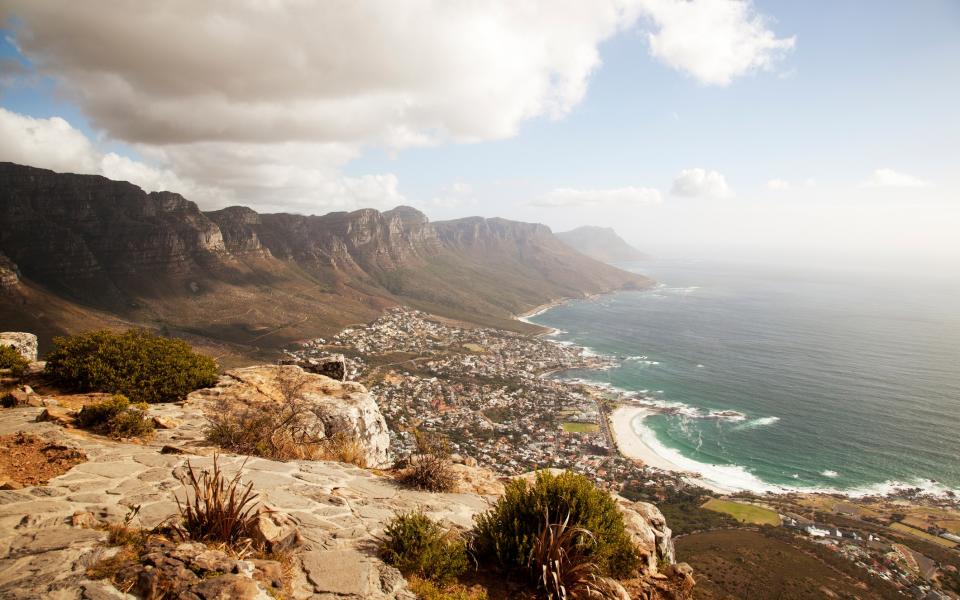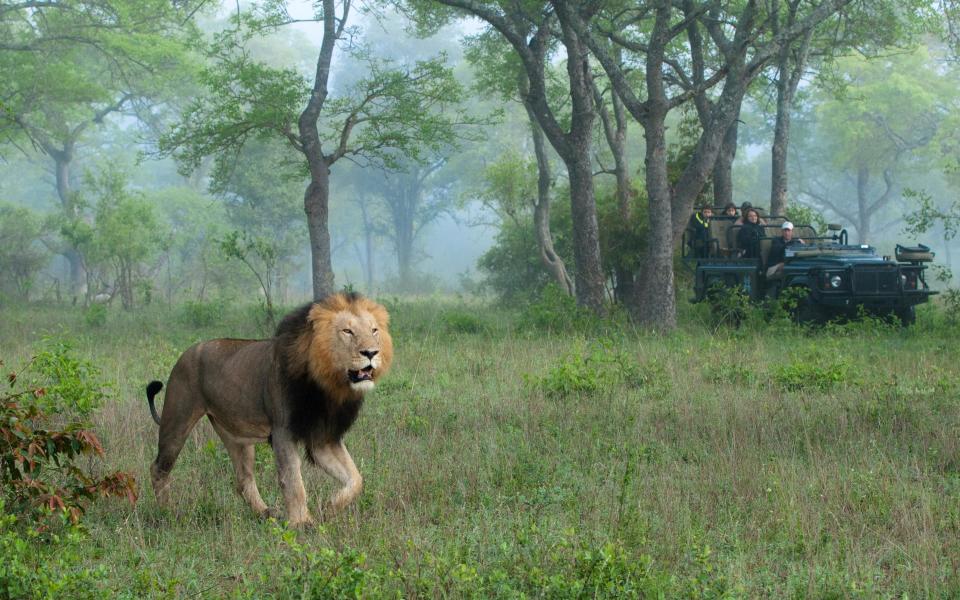Despair as South Africa bans tourists from US, Britain and most of Europe – but not Spain

After months of intense speculation, swirling rumours and industry lobbying, the South African government finally announced the nationalities of international tourists who would be welcome in the country from today.
Much of the world, including the US, the UK and most of Europe – but not, curiously, Spain – has been placed on a new high-risk list, with tourists still banned.
The announcement was met with astonishment and derision by major players in the South African tourism industry, which is the most sophisticated on the continent. Before Covid the industry was bringing in 10 per cent of the country’s GDP and one in seven South Africans depended on tourism to put food on the table.
The majority of big spenders – those who stay in Cape Town’s internationally famous luxury hotels, take expensive wildlife safaris in the country’s remote wilderness areas and lash out at five-star restaurants and bucolic wine estates – are Europeans and Americans. The British are the biggest of those – more than 400,000 holiday in South Africa annually.
The current list of banned countries includes the top tourism source markets – UK and USA – as well as other key countries such as France and the Netherlands. According to disgruntled tourism officials the measure used to designate countries as high-risk relies on shifting statistics – only countries with infection rates similar to South Africa’s (currently 16.1 per 100,000 residents over the last seven days) will be allowed entry. As one official told me: “This means the goal posts will shift from month to month, and thus there will be no certainty. And uncertainty is the enemy of tourism given that our industry relies so heavily on forward bookings. International travellers will just stay away this year, next year and beyond.”
The inclusion of Spain will strike many as inconsistent – or even downright peculiar. Its seven-day infection rate is one of the highest in Europe: 141.3 per 100,000. The figures for Germany and Italy, among those countries whose residents can visit, are 15.7 and 20, respectively. For Britain it is 64.1.

Colin Bell, a former board member of South African Tourism, co-founder of the Natural Selection group, and a major player in the industry for more than four decades, expressed extreme irritation at the details of the government announcement. “One of the big ironies is that we are regarded in Germany as a ‘red’ country, a high-risk country, so those who do come here will have to go into quarantine when they get back home. This has not been thought out very clearly.”
According to Bell “the government is going to revise the list in two weeks and in that time there has to be some hard lobbying to get this list overturned. We have no choice. We have to get this list sorted out. At the moment it makes no sense at all.”
Tourism officials, led by David Frost’s SATSA (South African Tourism Services Association), the main private sector representative body, were demanding meetings with the government today. The Tourism Business Council of South Africa (TBCSA) also called for urgent consultation with Government to understand the methodology used to define the list of high-risk countries. TBCSA’s CEO Tshifhiwa Tshivhengwa said there is no public health reason to ban travellers from any country, provided the testing regime and protocols are adhered to.”
Nick Van Gruisen, owner of the Ultimate Travel Company, grudgingly conceded that although it was a tentative step forward “it is hardly a breakthrough.”
Before this week’s controversial announcement international tourism officials were expecting a gradual return to normality as South Africa heads for the Christmas season, traditionally the country’s summer peak. British Airways last week announced the resumption of direct scheduled services out of London, seven flights a week to Johannesburg and seven to Cape Town.
Hospitality organisations within the country were also announcing gradual openings. Singita, the luxury safari company, recently announced that all of its lodges were ready to take visitors, the One & Only Hotel in Cape Town is opening on October 15, and all of the Cape’s wine estates are now open to tourists. However, the Grand Dame of Cape hotels, the Mount Nelson, which has already had to let go half its staff, is not planning to reopen until 2021. Several others will remain closed for the Christmas season.
Back in March the country’s president Cyril Ramaphosa introduced some of the toughest lockdown restrictions in the world – banning sales of tobacco and alcohol and imposing stay-at-home curfews across the country. However, some have credited those stringent measures with slowing what was the most rampant spread of the pandemic on the African continent.
As Africa’s most industrially advanced country, high numbers were anticipated – to date there have been 674,000 cases and 16,734 deaths – but a creaking health system and high-level corruption, endemic in South Africa, complicated the issue. In the first two weeks of the lockdown, for example, R85 million (£4 million) worth of Johannesburg Municipality PPE equipment went missing. President Ramaphosa feared that if the pandemic took hold it could rage unchecked through the overcrowded townships and informal settlements that encircle all of the country’s major cities. Fearing hundreds of thousands of deaths, South Africans of all political hues have grudgingly supported the President’s tough measures.
There has, however, been a high price to pay and the economy faltered badly; and as is the case across the world businesses have struggled to stay afloat. As a direct result of the pandemic South Africa’s GDP decreased by 51 per cent in the second quarter of this year. The country’s trade unions warned President Ramaphosa in August that with two million jobs lost already that unemployment was about to push past 50 per cent.
It was thus hoped that the international tourism industry would provide the early shoots of a recovery for a beleaguered economy. It still might, if David Frost, Colin Bell and their fellow industry operators are able to change the South African government’s mind in the next two weeks. They argue that Europeans tired of their own domestic lockdowns and heading for the dark winter months ahead might regard a holiday in warm sunshine in wide open spaces, naturally distanced from fellow humans as just the kind of spiritual and emotional lift they are looking for after a bleak 2020.
They will also argue that Covid tests before and soon after the currently banned Europeans travel would be a far more effective and pragmatic preventative measure than an outright ban. It may also save the country’s economy.

